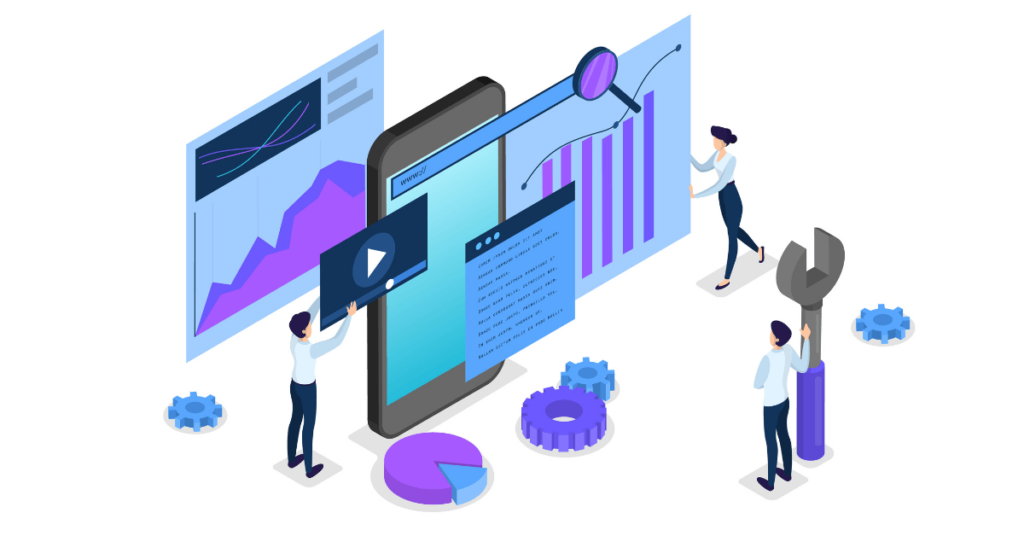In the ever-evolving world of digital advertising, a solid understanding of Pay-Per-Click (PPC) dynamics is essential.
PPC intelligence acts as a guiding force, leading the path to optimal campaign performance. The main reason you should consider competitive PPC intelligence is because a strategic grasp of it will lead you to PPC success.
In this article, I delve into details from my extensive PPC experience (with hits and misses). I’ll share with you insights into how you can harness competitive intelligence for success in Digital Advertising. From effective keyword research to refining landing pages and crafting impactful ad copy.
What Is PPC intelligence?
PPC intelligence is the strategic use of data and insights to optimize your campaigns. It involves analyzing competitor strategies, refining keywords, improving landing pages, and crafting compelling ad copy.
This data-driven approach empowers advertisers to enhance their Google Ads performance and stay ahead in the competitive digital advertising landscape.
Understanding PPC Intelligence
Navigating the intricate dynamics of digital advertising effectively can be challenging..
To comprehend PPC intelligence, it’s vital to first grasp its pivotal role in fine-tuning every aspect of Online Advertising campaigns. The understanding of PPC intelligence goes beyond mere observation; it is about leveraging actionable data to refine strategies continually.
Start with these aspects:
| PPC Aspect | What Is It? |
|---|---|
| Strategic Optimization | PPC intelligence is the art of strategically optimizing every element of PPC campaigns. |
| Competitor Decoding | It involves decoding competitor strategies, gaining insights into their approaches, and identifying areas for improvement. |
| Data-Driven Insights | PPC intelligence leverages data-driven insights to refine keywords, ensuring optimal targeting and relevance. |
| Landing Page Enhancement | Understanding PPC intelligence includes optimizing landing pages for improved user experience and conversion rates. |
| Ad Copy Crafting | It involves crafting compelling ad copies based on insights, enhancing engagement and click-through rates. |
| Continuous Refinement | A nuanced understanding of PPC intelligence goes beyond initial observations, emphasizing continuous refinement based on evolving data and market dynamics. |
| Navigating Digital Dynamics | Explore how PPC intelligence serves as the cornerstone for advertisers, providing the tools to navigate the intricate dynamics of digital advertising effectively. |
Leverage Data for Effective Advertising
The power of effective advertising can only be unlocked by leveraging data.
This means using the information resulting from research and your PPC efforts to make smart decisions that boost your ad game. By tapping into data, advertisers can:
- Understand what aspects of their ads are effective
- Refine targeting strategies to adapt
- Optimize campaigns for maximum impact
It’s about turning raw numbers into actionable insights, ensuring every advertising effort is backed by informed choices.
This section explores how leveraging data isn’t just a buzz word; it’s the key to running ads that resonate, engage, and drive real results in the competitive landscape of digital advertising.

Strategies For Using Competitive PPC Intelligence
I. Keyword Research
Keyword research involves identifying the right keywords to target in order to reach your target audience effectively. By conducting keyword research, you can gain valuable insights into the search habits of your audience, allowing you to tailor your ad campaigns to attract more clicks.
This process involves analyzing popular search terms and incorporating them into your marketing strategy. In the case of PPC, this process helps you identify the best keywords to bid on for your campaign.
By understanding which keywords are most effective in driving traffic and conversions, you can make informed decisions about where to allocate your ad spend for the best results.
1. Long-Tail Keyword Identification
Long-Tail Keyword Identification involves identifying specific and niche keywords that are longer and more specific than general keywords. These keywords typically have lower search volume but higher conversion rates. To identify long-tail keywords, it is important to use keyword research tools and analyze search trends.
Understanding long-tail keyword identification can greatly impact your company’s online marketing strategy.
2. Competitor Keyword Gap Analysis
Competitor Keyword Gap Analysis for advertising is the process of evaluating the keywords that your competitors are using in their advertisements, but you are not.
By identifying these keywords and incorporating them into your own advertising strategy, you can gain valuable insights and potentially edge out your competition.
Through Competitor Keyword Gap Analysis, you can uncover new opportunities to target specific audiences and improve the performance of your advertising campaigns. This analysis allows you to identify gaps in your keyword strategy and take advantage of keywords that are proving successful for your competitors.
3. Negative Keyword Identification
Negative Keyword Identification for PPC is a game-changer. By pinpointing and excluding irrelevant keywords from your ad campaigns, you save money and enhance ad precision. This simple yet powerful strategy ensures your ads reach the most valuable audience, boosting ROI and optimizing your overall PPC performance.
4. Seasonal Keyword Adjustments
Tailoring your keywords to match seasonal trends enhances ad relevance, maximizing engagement.
This straightforward strategy ensures your campaigns stay fresh and effective, driving optimal results in tune with the changing preferences of your target audience.
For example let’s imagine you’re selling sunglasses. In summer, emphasize keywords like “summer shades” or “UV protection.” During winter, shift to terms like “cozy eyewear” or “holiday gifts.” This Seasonal Keyword Adjustment ensures your ads align with what people are searching for, boosting relevance and clicks throughout the year.
II. Landing Page Optimization:
1. User Experience (UX) Enhancement
Enhancing User Experience (UX) means making your website or app user-friendly.
Simplify navigation, ensure pages load quickly, and optimize for different devices. By prioritizing ease-of-use, you keep visitors engaged and satisfied, ultimately improving your online performance.

2. A/B Testing for Landing Page Elements
This involves comparing different versions of key page components of your page layout to see which performs better. Experiment with different components like the image sizing, the hero image, fonts, etc.
This data-driven approach helps you identify what resonates with your audience, allowing you to optimize your landing pages for higher conversions.
3. Competitor Landing Page Analysis
This type of analysis involves studying rival websites to understand their strengths and weaknesses.
By evaluating their design, content, and user experience, you gain valuable insights. This intel guides you in refining your own landing pages, helping you stand out in the competitive online landscape.
4. Mobile Responsiveness Improvement
Make your website work seamlessly on smartphones and tablets. By optimizing layout, font sizes, and functionality for smaller screens, you provide users with a smooth experience.
This improvement is crucial as more people access the internet via mobile devices, ensuring your site remains accessible and user-friendly.
III. Ad Copy Enhancement:
1. Ad Copy A/B Testing
Ad Copy A/B Testing involves comparing different versions of your ad’s text to determine which resonates best with your audience. By experimenting with variations in headlines, descriptions, or calls-to-action, you can identify the most effective messaging.
2. Emotional Trigger Integration
Incorporate relatable and emotive elements in your content, such as storytelling or using positive imagery. This way you create a connection with your audience.
This strategy aims to evoke specific feelings that resonate, making your brand more memorable and fostering a stronger customer bond.
3. Dynamic Keyword Insertion (DKI)
The Dynamic Keyword Insertion is an option of which not many marketers take advantage. Use DKI to let the ad platform (such as Google Ads) customize your ad copy to match a user’s search query, making it more relevant and engaging.
By automatically inserting the searched keyword into the ad, you increase the likelihood of capturing the user’s attention and driving clicks, ultimately optimizing your ad’s effectiveness.
4. Call-to-Action (CTA) Experimentation
Call-to-Action (CTA) Experimentation involves testing different prompts to guide user actions. By trying various phrases like “Shop Now” or “Learn More,” you discover which resonates best with your audience. This hands-on approach allows you to refine your CTAs, increasing the likelihood of user engagement and conversions on your website or campaign.

IV. Additional Strategies:
1. Ad Position Monitoring and Adjustments
- Regularly track where your ads appear in search results and adjust bids accordingly.
- Aim for a balance between visibility and cost-effectiveness to ensure your ads are well-placed, attracting attention without overspending.
This proactive strategy enhances your overall advertising performance.
2. Quality Score Improvement Tactics
- Boost your ad success with Quality Score Improvement Tactics.
- Focus on relevance, ensuring keywords align with ad copy and landing pages.
- Enhance user experience by optimizing page load times and mobile responsiveness.
- Regularly review and refine your campaigns based on performance data.
Exploring Pay-Per-Click Tools For Effective PPC Campaigns
So far we have gone over what PPC is and strategies to leverage it for your business. But how can you execute these plans? Here’s a short lists of tools to ensure your PPC success.
The purpose of utilizing these is to streamline your efforts: Uncover valuable insights, optimize ad spend, and track success metrics easily.
Ad Platforms
Ad platforms are crucial for digital advertising success.
- Google Ads, the most popular, dominates search and display ads.
- Bing Ads reaches a diverse audience through Microsoft’s search network.
- Facebook Ads excels in social media promotion.
- LinkedIn Ads targets professionals effectively.
Each platform offers unique features, allowing advertisers to tailor campaigns based on their goals and audience preferences.
Keyword Planners
Keyword planners are essential tools for effective digital marketing.
- Google Keyword Planner, a go-to for many, provides insights into keyword trends and suggests relevant terms.
- SEMrush offers comprehensive keyword research, competitor analysis, and tracking.
Both tools empower businesses to optimize their content and advertising strategies by identifying the most relevant and high-performing keywords in their industry.
Performance Analytics Tools
Performance analytics tools play a pivotal role in evaluating and optimizing digital strategies.
- Google Analytics stands out, offering a comprehensive view of website performance.
- Adobe Analytics caters to larger enterprises, providing in-depth insights.
- Funnelytics – a visual platform that brings in all of your customer journey data and allows you to get insights quickly.
These tools track user behavior, conversion rates, and other key metrics, enabling data-driven decisions to enhance overall online performance.
Landing Page Builders
Landing page builders simplify the creation of effective, conversion-focused web pages. Explore a variety of landing page builders, each catering to unique needs.
- Instapage focuses on scalability and collaboration for larger teams.
- Leadpages and Unbounce offer easy-to-use interfaces for quick customization.
- For a comprehensive approach, consider Clickfunnels, Systeme.io, and GrooveFunnels, providing all-in-one solutions with features like funnel building, email marketing, and more.
These tools enable businesses to quickly develop and test landing pages, optimizing user experiences and boosting conversion rates. Tailor your choice to match your specific business requirements and streamline your online presence.

The Role of PPC Management Software
PPC management software streamlines and enhances the efficiency of pay-per-click advertising campaigns. It automates tasks like bid management, ad testing, and performance monitoring.
Selecting the Right PPC Management Software
The “right” software will vary according to your needs:
- Google Ads Editor simplifies campaign management, allowing bulk edits and offline work.
- Skai.io and Optmyzr are bid management software that automate bid adjustments for efficiency.
- Adalysis aids in ad testing and performance monitoring.
These tools collectively enhance precision, save time, and drive better results in PPC campaigns.
The Role of PPC Reporting Software
PPC Reporting Software is your campaign success storyteller. It turns complex data into clear visuals, saving time and providing insights. With customizable reports and easy integration, it tracks performance, measures ROI, and aligns with business goals.
Simplify communication, enhance efficiency, and showcase your PPC achievements transparently.
Choosing the Best PPC Reporting Software
- Looker Studio (Google Data Studio) stands out for its free, customizable reports.
- AdStage streamlines multi-channel reporting.
- ReportGarden offers user-friendly dashboards.
Each tool simplifies complex data, providing transparency and efficiency in evaluating PPC campaign performance.
Embracing Data To Ensure PPC Success
The only way to achieve PPC success is by embracing data-driven strategies.
Analyze user behavior, track conversions, and study performance metrics. Use some of the tools mentioned in this article, like Google Analytics for valuable insights. Make informed decisions, optimize ad spend, and refine campaigns for maximum impact.
Embracing data ensures your PPC efforts align with audience preferences, driving effective results.
FAQs about PPC Intelligence
How can competitive intelligence benefit my PPC campaigns?
Competitive intelligence provides a deeper understanding of your target audience and helps you make informed decisions to optimize your ad campaigns’ competitive edge in the digital marketing landscape.
How can I effectively utilize PPC intelligence tools?
To leveragethese tools effectively, it is crucial to understand the intricacies of PPC advertising. Bridge the gap between the tools and how they help you execute your strategies. And then, understand how these tools help you with your ultimate PPC goal.
Remember that every new tool entails a learning curve to overcome, so narrow down them to those that cater to your business needs only.
Don’t get lost in the midst of mastering all tools, and focus on the main goal: Achieving PPC success.
Is competitive PPC intelligence necessary for successful PPC advertising?
Competitive PPC intelligence is no longer optional but essential for marketers and businesses looking to succeed in the digital advertising realm. By embracing PPC intelligence and effectively analyzing your competition, you can enhance your marketing campaigns and outperform rivals.
How does PPC intelligence empower marketers?
PPC intelligence empowers marketers by providing actionable insights that enable them to make data-driven decisions. By leveraging tools like Google Ads and embracing the power of PPC intelligence, marketers can optimize their advertising strategies and enhance campaign performance.

What role does competitive intelligence play in PPC advertising?
Competitive intelligence plays a vital role in PPC advertising as it allows marketers to understand the competitive landscape and identify opportunities for improvement. By analyzing competitors, you gain insights into their tactics, keyword strategies, and ad performances. This information informs your own campaigns, allowing you to identify gaps, capitalize on opportunities, and stay ahead.
Key Takeaways
Leveraging PPC intelligence is the key to PPC success. From honing in on the right keywords through dynamic insertion to mastering the art of emotional triggers, each strategy plays a crucial role.
Make the most out of tools like Google Ads, SEMrush, and Clickfunnels to refine your approach, analyze competition, and elevate your campaigns.
As you navigate the ever-evolving landscape of PPC, remember: data-driven decisions, competitive intelligence, and the right tools are your allies.
Now that we have delved into the world of PPC advertising, you can stay ahead of the curve. Put the recommendations from this article into practice and gain the PPC success your business needs.





